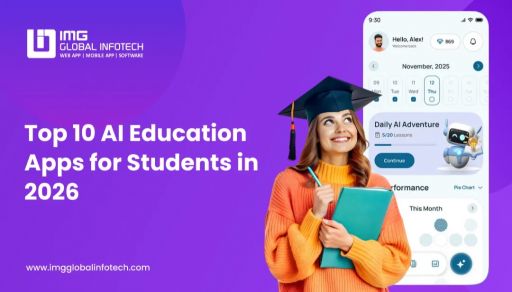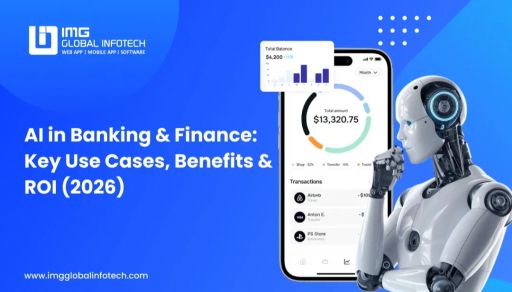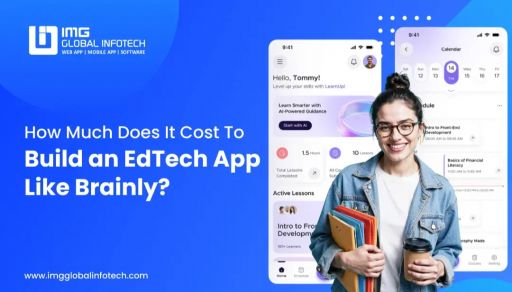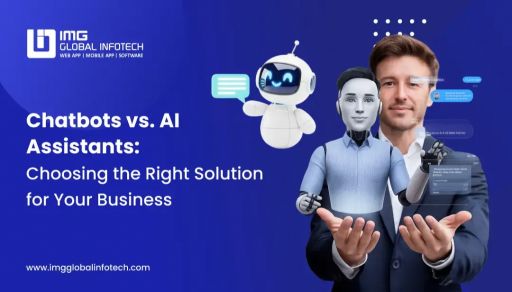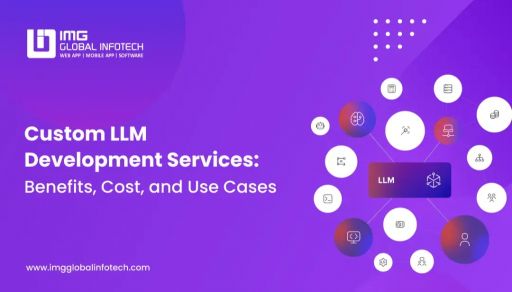How To Build A Smart Healthcare AI Chatbot
Neeraj Rajput
Sep 11, 2025
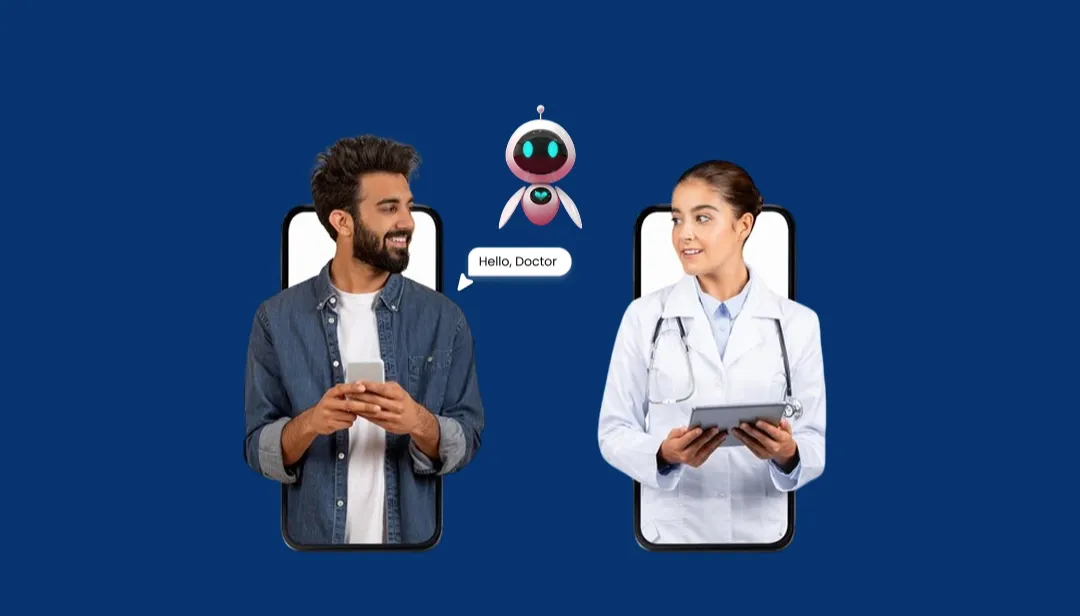
Today's fast-moving healthcare sector has made being able to provide timely patient support and improve operational efficiency exceptionally valuable. Healthcare chatbots are changing patient engagement by knocking down barriers of time in the health care interaction by responding to patient questions, doing symptom assessments, helping schedule appointments, giving medication reminders, and freeing health care workers to do tasks that need more attention.
Chatbots can lessen the burden of repetitive administrative tasks on the medical professionals while providing specific and personalized healthcare information to patients. If you want to create a healthcare chatbot you must combine various technology infrastructures (artificial intelligence, natural language processing, and secure data processing) with a useful and valuable design. Whether you are a hospital, clinic, or telemedicine platform, creating a chatbot can help coordinate healthcare delivery, increase patient satisfaction, and provide increased operational efficiencies. This blog will take you through the process to develop a medical chatbot fit for the needs of today's patient.
What is a Medical Chatbot?
In simple terms, a medical chatbot is an AI enabled virtual assistant that helps provide healthcare specific support, information, and clinical guidance to patients. From scheduling appointments and being an assistant to provide symptoms checks and meditation reminders, medical chatbots can also provide patients with health tips. AI-powered medical chatbots use natural language processing to provide patients with quick, convenient, and personalized information about their health needs, which is useful for decreasing hospital load and improving patient engagement, while assuring that the patients have timely access to trustworthy medical help.
Benefits of Medical Chatbots in Healthcare
If you want to build a healthcare chatbot you must know the reasons for it. In this section we have covered a list of a few incredible reasons why you must invest in it.
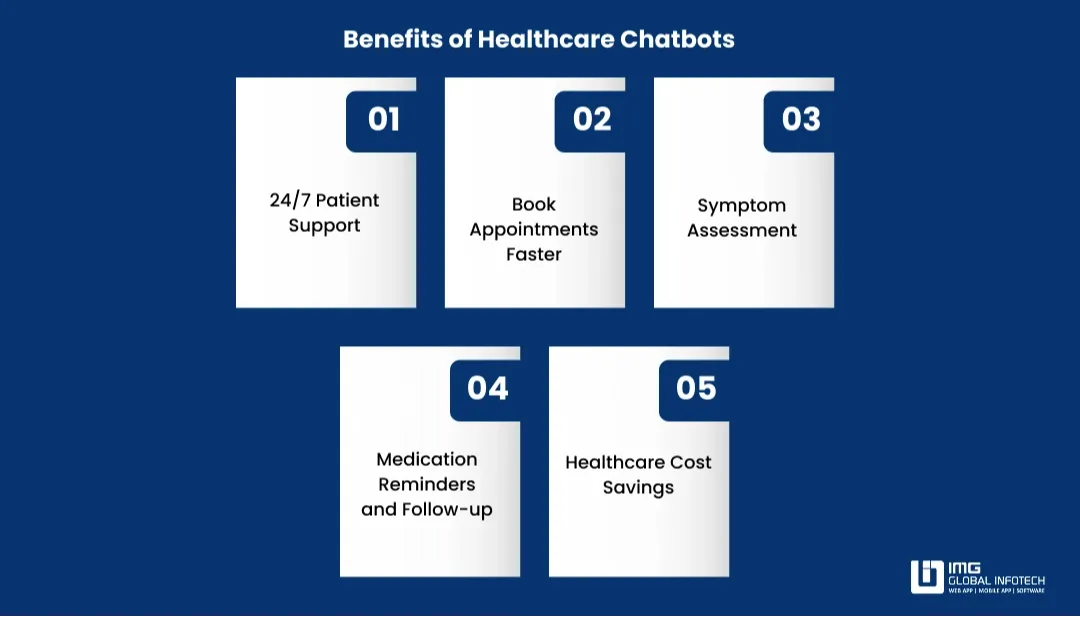
1. 24/7 Patient Support
Medical AI chatbot development allows for immediate healthcare guidance, day or night, so patients can get answers to their questions anytime and anywhere. This kind of access minimizes unnecessary visits to the hospital for basic concerns, while simultaneously improving patient satisfaction.
2. Book Appointments Faster
Free AI chatbots let patients book, reschedule, or cancel appointments automatically. Chatbots even send out automated reminders to patients to lessen missed appointments, free up doctors' schedules, and operate procedures more smoothly and efficiently for the entire hospital.
3. Symptom Assessment
Using AI-powered symptom checkers, medical chatbots can take a patients' reported symptoms and determine possible diagnoses. Medical chatbots are not doctor replacements but they will direct the patient to the right care level (urgent or self-care). They also help physicians by potentially eliminating some of the basic wait times before they see the patient.
4. Medication Reminders and Follow-up
Medical AI chatbot development assists patients in adhering to their treatment plan by creating reminders to take their medications, take the right dosage, and do follow-up care directions. This feature helps individuals suffering from chronic disease that need to strictly adhere to their medication, potentially improving treatment outcome.
5. Healthcare Cost Savings
Healthcare chatbot development saves medical organizations' money by automating repeated tasks such as answering frequently asked questions, booking appointments, and basic inquiries. They also save time waiting for patients and unnecessary consultations, which allow for more affordable, efficient, and available healthcare.
Key Features of an AI Medical Chatbot
Here is the list of features of the chatbot development for the healthcare industry which you must know before investing.
1. 24/7 Availability
AI-powered chatbot offers 24/7 support to the patients, responding to all their queries immediately; hence it is providing uninterrupted support without any need for human input.
2. Symptom Checker
AI-powered diagnostic tool that comprehends the user-reported symptoms and suggests the likely conditions along with the suitable actions or medical care to be provided.
3. Appointment Scheduling
Patients are empowered to book, reschedule, or cancel appointments on their own, thereby lowering the administrative workload and minimizing missed visits.
4. Medication Reminders
Chatbot development for the healthcare industry offers the direct and time-appropriate signals for medication intake, dosage instructions, and follow-ups that help the patient to stick to the agreed treatment plan.
5. Personalized Health Tips
Chatbot development for healthcare gives personalized and targeted advice about food, physical training, and good living practices on the basis of one’s health records and medical background.
6. Patient Data Management
Keeps patient data trouble-free and organized, thus healthcare providers can obtain this information quickly and easily while still adhering to data privacy policies.
7. AI-Powered Conversations
The use of machine learning enables a better understanding of questions posed by users and hence the whole engagement becomes more human-like and conversational.
8. Integration with EHR Systems
A link to the electronic health records repository for quick and easy access to patient history, lab results, and treatment plans.
9. Billing and Insurance Assistance
Chatbot development for the healthcare industry that allows patients and medical staff to be relieved of the burden of administrative tasks through the provision of bills, insurance claims, and coverage information.
10. Follow-Up Care Notifications
The function that sends reminders for medical visits, laboratory tests, and lifestyle changes, thus monitoring continuously and improving health conditions as well.
Step-by-Step to Develop a Medical Chatbot
A medical chatbot needs to be carefully designed, a professional team with proper technical know-how and, on top of that, it needs to conform to healthcare regulations. A professional chatbot healthcare software developers will certainly make the whole process to develop a medical chatbot. The step by step approach is as follows:
1. Requirement Analysis
This is the first stage to create a healthcare chatbot in which you should start by explaining what you wish to achieve to the development company. Decide the function of the bot, e.g. is it going to be of help in taking the patient's symptoms, scheduling an appointment, engaging the patients, or giving health tips. Show off users the product; decide on which platform (mobile app, website, or messaging apps) to release the product, enumerate some features of the chatbot. Good requirements will help the AI app development company to provide a solution that is the closest to your vision.
2. Choosing the Right Technology
A professional healthcare chatbot development services providers will first decide which technology is the best to use. Technologies can involve AI frameworks, natural language processing (NLP) engines, and secure cloud infrastructure. The technology of the future should be geared towards conversational AI, multi-language support, and integration with EHR and hospital management systems.
3. Designing Conversational Flow
One of the stages to create a healthcare chatbot is writing the dialogue scripts and building decision trees for chatbot conversations. The healthcare chatbot development company ensures that the chatbot gives an accurate answer to a medical query in a human-like and empathetic tone. User experience design plays a very important role in making interactions smooth and easy.
4. Development and Integration
This is the fourth step to build an AI medical chatbot in which the hired company uses the development process for the back and front ends, as well as the integration of the AI models, APIs, and healthcare databases. Integration with EHR systems, appointment software, and patient management tools makes it possible for chatbots to have personalized conversations and provide health-related information that is relevant to the user.
5. Testing and Quality Assurance
The most important part of thorough testing is that it guarantees the accuracy, reliability, and observance of healthcare regulations such as HIPAA. The development company conducts functional testing, security checks, and user experience testing to identify and fix any issues before deployment.
6. Deployment and Maintenance
After the chatbot has been tested, it is deployed onto the selected platforms. Performance can be continuously monitored, and updates as well as AI model training can be carried out to enable performance improvements over time. The development company usually provides the constant maintenance and support that is necessary to keep the device performing well and to enable the medical chatbot development company to be in line with healthcare requirement changes.
How Much Does AI Medical Chatbot Development Cost?
Typically, the healthcare chatbot development cost ranges from $8,000 to $15,000 or even more. The simpler one with only the essential features like FAQs, appointment booking, and symptom checking being at the lower end of the range whereas the complex AI-driven, multi-purpose chatbot that is deeply integrated into EHR, billing, and telemedicine systems being at the upper end of the range.
5 Key Factors That Affect The Cost To Create A Healthcare Chatbot
Features and Functionality
More sophisticated features of your chatbot mean a bigger development cost. Features such as AI-powered symptom assessment, personalized health recommendations, multilingual support, and wearable device integration increase cost to create a healthcare chatbot.
Platform and Accessibility
The chatbot’s target platform whether it’s a mobile app, website, or messaging apps like WhatsApp or Facebook Messenger determines the Cost to build an ai chatbot. Multi-platform deployment means that additional development and testing have to be done, thus expenses will be higher.
AI and Natural Language Processing (NLP) Integration
The use of AI and NLP to comprehend and to be able to respond correctly to medical queries is a very challenging technology and also requires skilled people. The complexity of AI models increases development time and cost, but the chatbot accuracy and user experience get better.
Compliance and Security
Healthcare apps must comply with HIPAA, GDPR, and local healthcare standards, among others. The efforts on ensuring secure storage of data, encrypted communication, and patient privacy increase development and maintenance costs.
Design, Testing, and Maintenance
A good user-friendly design, tough testing, and continuous maintenance are a must for the success of the chatbot. UI/UX design, functional testing, bug fixing, updating, and AI model training are part of the cost that pays for the chatbot performance improvement over time.
The AI app development cost is a function of several variables, such as features, platform, AI integration, compliance, and ongoing maintenance. Making an investment in a reputable development company is the guarantee for a secure, reliable, and user-friendly chatbot that will not only empower the patient but will also simplify the whole healthcare process. Proper and efficient planning and having definite requirements will be helpful in achieving the right balance of cost and quality of the solution.
Future of Medical Chatbots With AI
Medical chatbots have been revolutionizing the industry at lightning speed, and the upcoming times will see even more remarkable and accessible innovations, along with the saving of more time and money for the healthcare system. The following are the five major trends that are paving the way for medical chatbot evolution:
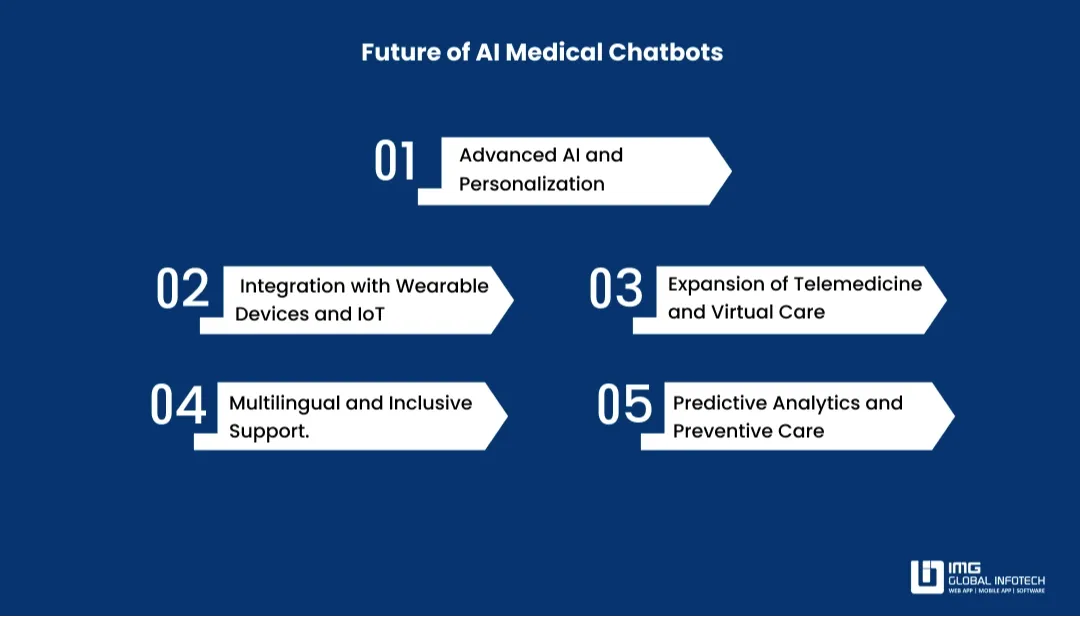
1. Advanced AI and Personalization
The medical chatbots of the future will significantly rely on detailed AI as well as machine learning algorithms for Healthcare. Through the incorporation of patient history, lifestyle, and live health data, the chatbots will be equipped to provide personal recommendations and treatment reminders, thus making the involvement of the patient with the disease to be higher and the healthcare to improve.
2. Integration with Wearable Devices and IoT
As wearable health devices and IoT-enabled medical tools gain prevalence, chatbots will be able to communicate with these technologies without any issues. Thus, a healthcare ecosystem that is proactive instead of reactive will be created because of the continuous monitoring of vital signs, early detection of anomalies, and instant feedback.
3. Expansion of Telemedicine and Virtual Care
Medical chatbots will increasingly support telemedicine platforms by triaging patients, conducting initial consultations, and facilitating virtual appointments. The inclusion of this will decrease the waiting time, make doctors’ schedules more efficient and thus healthcare will be accessible to more people especially in remote or less medicalized areas.
4. Multilingual and Inclusive Support
Future chatbots will offer multilingual capabilities, thus dismantling language barriers and making healthcare more accessible globally. Moreover, they will also be designed for the patients with disabilities and will have features like voice commands, and screen reader compatibility and other assistive technologies.
5. Predictive Analytics and Preventive Care
Chatbots will use the method of analyzing large datasets to predict future health risks of a person and suggest the necessary preventive measures. This strategy will be the root of early stages of disease identification, making wellness plans more personalized, and lowering the number of patients who return to hospitals.
Conclusion
Healthcare chatbot is a creative move on the part of the healthcare organization to instill better patient participation, make hospital management smoother and provide required medical aid in time. These chatbots enable doctors to provide more personalized and time-efficient care through AI, NLP, and secure data management for that you need consultation with one of the best AI software development companies. At IMG Global Infotech, we are the people who bring the healthcare chatbots with the measures of intelligence, trustworthiness, and compliance that are specifically designed for your organization to the market. Our innovations enable health systems to realize the goals of efficiency, patient satisfaction, and keeping the pace in the digital healthcare revolution thus making high-quality care available anytime, anywhere.
Neeraj Rajput is the co-founder of a leading IT company with over a decade of experience in technology consulting, product development, and digital transformation. With a passion for solving complex business challenges through smart tech solutions, he shares insights on innovation, leadership, and the evolving IT landscape



